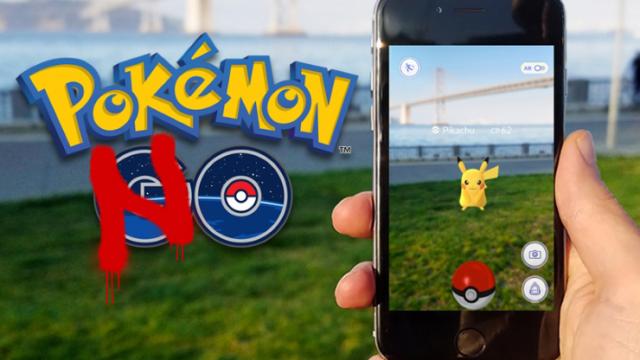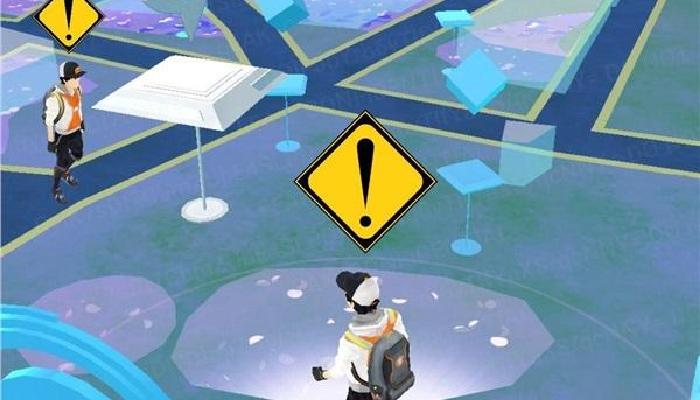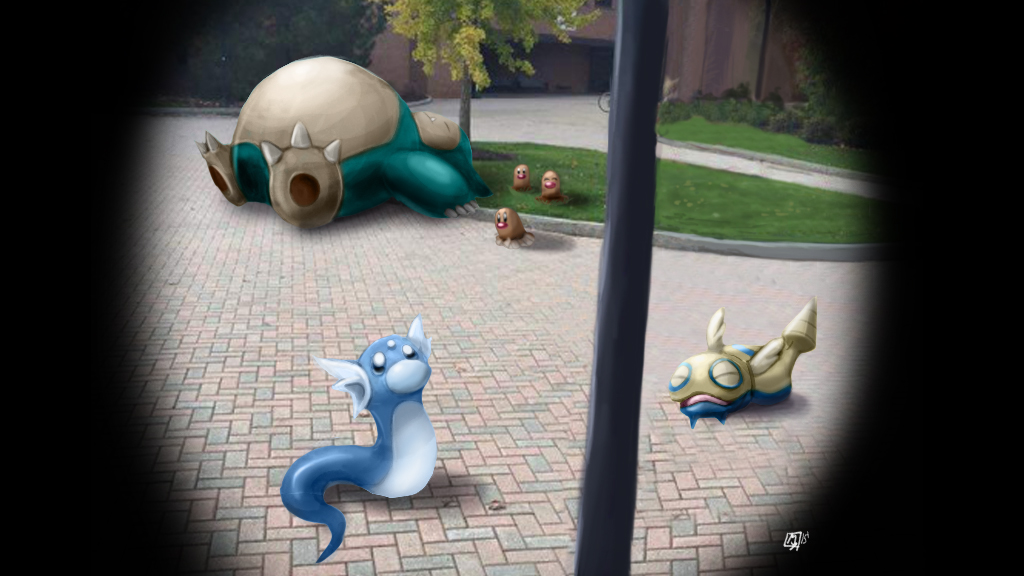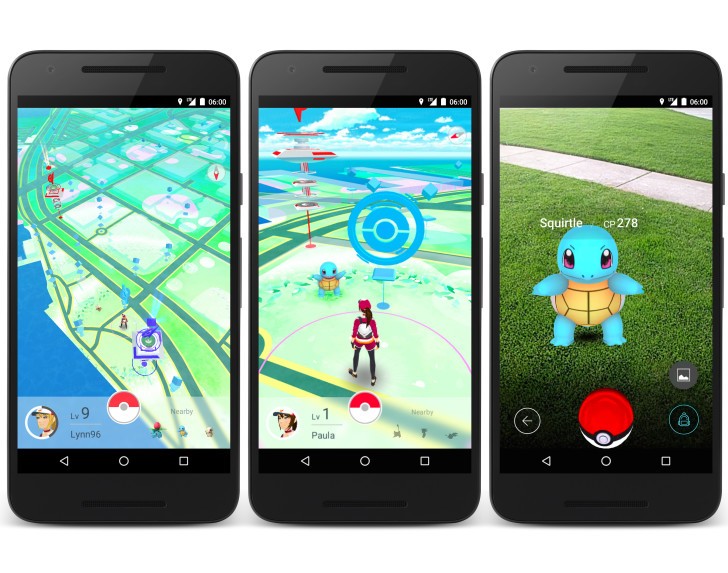
Last week, two things happened that will have long-lasting impact on American society and the global economy. First, the yield on the 10-year Treasury fell to a record low of 1.366 percent. Second, Nintendo released Pokémon Go, a mobile game that in a matter of days has become a viral sensation.
Related: Pokémon Go, explained
These two developments are more closely connected than it might seem at first glance. Obviously, it would be ridiculous to claim that Pokémon Go is singlehandedly responsible for recent macroeconomic trends. But technology-based products like Pokémon Go explain a lot about the current state of the global economy.
Pokémon Go is different from 20th-century entertainment options
/cdn0.vox-cdn.com/uploads/chorus_asset/file/6777439/546258778.jpg)
Photo by Drew Angerer/Getty Images
New York residents like these benefit from the Pokémon Go economy, but a lot of Americans don’t.
If you were looking to have fun with some friends 50 years ago, you might have gone to a bowling alley. Maybe you would have hung out at a diner or gone to the movies.
These were all activities that involved spending a certain amount of money in the local economy. That created opportunities for adults in your town to start and run small businesses. It also meant that a teenager who wanted to find a summer job could find one waiting tables or taking tickets at the movie theater.
You can spend money on Pokémon Go too. But the economics of the game are very different. When you spend money on items in the Pokémon Go world, it doesn’t go into the pocket of a local Pokémon entrepreneur — it goes into the pockets of the huge California- and Japan-based global companies that created Pokémon Go.
There are, of course, some good things about this. Pokémon Go can be a much more affordable hobby than going to a bowling alley or the movies. In fact, you don’t have to spend any money on it. And the explosion of options made possible by online platforms creates real value — the average teenager has vastly more options for games to play, movies to watch, and so forth than at any time in American history.
The Pokémon Go economy means growing regional inequality
/cdn0.vox-cdn.com/uploads/chorus_asset/file/6777443/546288860.jpg)
Photo by Drew Angerer/Getty Images
But the Pokémon Go economy also has some real downsides. One has to do with regional inequality. Nintendo and its partners are rumored to be earning more than $1 million per day from Pokémon Go. That money is flowing away from small and medium cities and toward big technology companies concentrated in big cities.
And obviously Pokémon Go isn’t the only example of this. Amazon is doing something similar in the retail industry, diverting business away from local retailers and sucking cash into its corporate headquarters in Seattle. Companies like Google, Facebook, and Vox Media are drawing ad dollars that previously went to local newspapers and television stations.
Of course, America has always had geographic industry clusters that sold products nationwide — think about the Detroit auto business or the Hollywood movie industry. But there was an important difference: Major 20th-century industries tended to generate a lot of opportunities in communities where their product was sold. A film might be made in Hollywood, but local people all over America had to build and operate movie theaters. Cars might be made in Detroit, but people all over the country had to run auto dealerships and car repair shops.
In contrast, a lot of internet-based businesses are so ethereal that they barely create any jobs in most markets. Smartphone platforms have created some jobs making apps, but app makers don’t have to live in any particular location. In practice, they tend to be heavily concentrated in the same big cities as most other technology jobs.
The result is that the internet economy is increasingly transforming America into two parallel economies. Cities on the receiving end of Pokémon Go–style money gushers are booming so much that acute housing shortages are causing rents to skyrocket. The rest of the country has seen barely seen an economic recovery at all.
The Pokémon Go economy means falling interest rates and slow growth
/cdn0.vox-cdn.com/uploads/chorus_asset/file/6777465/512763454.jpg)
Photo by Angela Weiss/Getty Images for Tracy Paul & Co
In the 20th century, new industries tended to create a lot of demand for capital. It took a lot of cash to build assembly lines and movie studios, of course. But beyond that, thousands of people all over the country would go to their local banks to finance the construction of movie theaters, auto dealerships, and so forth.
This meant that people with capital to lend could almost always find people eager to borrow it to finance new business ventures. This, in turn, made the job of America’s central bank, the Federal Reserve, relatively easy. Anytime the Fed wanted to boost growth, it could cut interest rates and get a burst of entrepreneurs starting new businesses.
But the Pokémon Go economy is different. Nintendo and its partners obviously needed to invest some cash in hiring programmers and designers to build the game. But the sums involved here are tiny compared with the cost of building a new car assembly line. And Pokémon Go seems unlikely to produce very many opportunities for complementary local businesses. People play on their smartphones, so there’s no need for Pokémon cyber cafes. Smartphones are too cheap for smartphone repair shops to be a good business.
And this seems to have severed the traditional link between capital accumulation and economic growth. Since 2008, the US economy has been awash in cheap capital. In a few places, especially Silicon Valley, that has created bubble-like conditions where every crazy ideaseems to get funding.
Yet the total sums being invested in these areas are a fraction of the overall capital people have available to invest. And in the rest of the country, people are struggling to find any productive investment ideas. So interest rates keep falling as people increasingly despair of finding ways to get high returns from their savings.
Ultimately, this situation hurts everyone, because it shows up as a shortfall of overall demand. Slow growth outside of big cities means that customers have less money to spend on games like Pokémon Go.
How to make the Pokémon Go economy work for everyone
The success of Pokémon Go points to two big areas where policymakers ought to change their approach.
One is to relax housing policy to allow more people to move to areas where high-tech products are made. While the average resident of Kansas City or Baltimore might not have the skills to create the next great mobile game, he or she probably could find work as a schoolteacher, nurse, or construction worker in San Francisco or New York — but only if he or she is allowed to live within commuting distance of technology workers.
The other is to think harder about managing demand. There may be more that central banks can do to boost demand. If that doesn’t work, then more direct income redistribution may be called for — taxing rich people in high-growth areas to fund expanded government services, wage subsidies, or even cash payments to people in slower-growing parts of the country.
Thanks to Alex Balk for inspiring this post.
3 WAYS TO SHOW YOUR SUPPORT
- Log in to post comments
















Comments
DH Fabian replied on
New economic realities
Sounds like a simple case of middle class angst. Everything changed since the 1980s, and we've continued to transition to an entirely new economic/social model -- far more primitive, to be sure, solidly rooted in "survival of the fittest" ideology, but that's the way it is. If we can put America's situation in the proverbial nutshell, it comes down to: The rich are now doing to the middle class what the middle class already did to the poor. We've increasingly put ourselves at the mercy of the whims of corporations/the economy. The US has been shutting down/shipping out jobs for years, and all you can do is adjust.